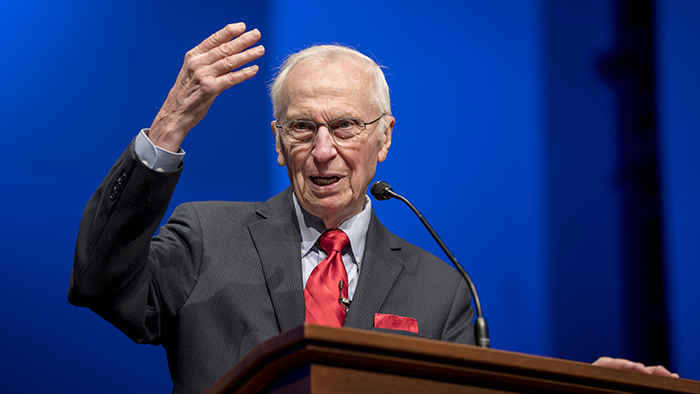
The difference in understanding the nature of Christ, the meaning of His salvation — is not a question of religion of a particular denomination, but the center around which faith revolves. Although the author, after trying to cover all the key problems of theology, in some cases does so in more detail, in others only on the surface, the analysis of Christology as a central problem covers both theological and historical context.
In some cases, Erickson goes beyond Christian orthodoxy. Being competent in the main problems of Christianity, the author touches on the problems of divine inspiration of biblical texts, creationism, and metaphysics. In others, the author’s position is based on the results of modern scientific research. For example, in the matter of creating the world. In this section, the author does not consider the meaning and use of the Hebrew word meaning «day» in the first chapter of Genesis. For him, a more compelling proof of how God created the world is the achievements of modern science. And at the same time the author does not even question how honest and impartial the conclusions made on the basis of these achievements are. He is of the opinion that creation does not mean six days in the literal sense, so it partially supports the evolutionary point of view.
Discussion of this issue is becoming increasingly relevant among various members of the evangelical movement around the world.
Erickson’s monograph traces a historical-systematic approach, which includes both the transcendent (view of the presence of God beyond our comprehension) and the immanent component (the divine influence and the presence of God in nature, society). Erickson argues that both approaches to biblical Christology are likely to apply a methodological approach to solving the problem. Although the very principle of methodology to the XVIII century. was not known and known. Since the era of rationalism and the Enlightenment, presented by Bacon, Descartes, Newton and Leibniz, clear approaches to research methods have been developed. Considering theology as a science, Erickson introduces a methodology for considering Christological issues, which he called «eternal problems.»
Each of these two Christological systems has strengths and weaknesses that are still well defined and studied. In some cases, the provisions advocating one of these positions are in themselves criticisms of a different approach.
The taxonomy of Erickson’s Christology has a very relevant component today. Given the secularized tendencies of modernity, when the secular ideas of the postmodern dominate the sacred, and skepticism about revelation only grows, such an approach is necessary. In his writings, D. Bonhofer posed the question of how to preach Christ when the church plays no role in the modern world. And postmodernism is a manifestation of relativism, when objective truth does not exist. Therefore, in preaching Christ, one should act systematically, taking into account the fact that postmodernism is a destruction that encroaches on Christ — the absolute truth. On the other hand, modern «apologetic» books by evangelical authors, which consider the philosophy of postmodernism, often focus only on the harm of postmodernism and rarely pay attention to the positive lessons of postmodernism that can be learned in seminars and applied in churches. Rhetoric is often reduced to the following statements: postmodern society has recognized the pluralism of many truths (relativism) or completely denies the possibility of knowing the truth (agnosticism), postmodernism necessarily denies philosophical and theological thought, nothing useful in postmodern philosophy for Christianity can be .
However, the Christological problem formulated in Erickson’s monograph has a missionary aspect in postmodern times. This gives reason to believe that the ap. Paul would study the language of postmodern philosophy to find resources for the Gospel and testimonies of the one Truth in it, to find reasons to start a dialogue. The search for such reasons for dialogue is possible if we find at least something true in postmodern philosophy — for example, we pay attention to the critique of the rationalism of the Enlightenment and medieval metaphysics, to legitimize the priority of the text and the community to which the text belongs.
Oleg Blyzniuk — a bachelor of theology and evangelical preacher










